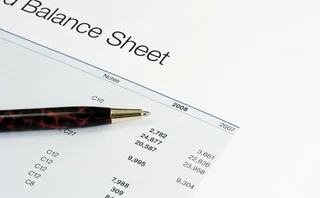
Taking stock in shanghai
The resumption of warrants trading in China last year seems to signal that regulators are keen on developing the equity derivatives market. Pamela Tang speaks to James Liu, vice-president of the Shanghai Stock Exchange

Are you happy with the development of the warrants market?
Yes, definitely. We introduced warrants at the exchange last September in association with the share reform and have listed 12 so far. Even though we only have a dozen warrants, we are seeing a lot of trading activity, the volume has been consistently high, and we believe this is a major trend in warrants in China. This represents a different product from the cash market, so the interest from the market is understandable. So although the initial aim was share reform, it is now obvious that the market welcomes such products.
We know there is some concern about speculation, which is not unreasonable, given that the warrants market is more speculative than other markets, especially since secondary transaction volumes have been too high. If you wait till the end of the year, it is likely that trading volumes on the Shanghai Stock Exchange could be ranked among the biggest in the world, even though we have fewer than 15 warrants.
Does the exchange plan to list more warrants to ride this wave?
That would depend on the market and issuers. We have a set of rules and criteria to issue warrants, and companies know that every time they make plans to issue warrants, they have to put up some collateral and if they are looking at put warrants, they will need to put up cash. They need to weigh those requirements and see if it is a commercially viable decision. We are not forcing the issuers in any way.
But I need to emphasise that these warrants issued by bigger shareholders are part of the stock share reform, which we anticipate will be completed within a matter of months. Then you will be looking at a completely different ballgame, and that's why we've done preliminary studies on other types of warrants.
Are you happy with the progress on share reform?
It is going more smoothly than initially anticipated. When we first began the process, we knew it would be difficult, which is why we spent a lot of time in the preparation stage.
Most of the companies have already completed the process or are near the finish line. Five years ago, we tried to solve this problem and didn't succeed, which was an insight into how difficult the process would be. And even when we started it this time, we were facing a lot of opposition, criticism and skepticism. We didn't anticipate the positive reaction from the market.
There are some companies resisting the process, but we believe the consensus is that this is a historic moment and a wave that cannot be prevented. That should be obvious to people who have a sense of the market. Six months ago, people were questioning the benefits, but now that questioning is meaningless - you just have to do it, because everyone else already has. They risk being pushed to the sidelines and marginalised if there is continued resistance, especially from the market and investors.
Now that we are almost at the end of the process, this is a good opportunity to beef up our risk management practices to complement the recent changes. But we are careful not to go overboard, which could just create another set of problems.
Are stock index futures in the pipeline?
That is something we're definitely working on and we realise that index futures are important and becoming a necessity if we want this market to continue growing. We have decided to create an exchange for that; while it would cover a wide spectrum of financial futures, the priority would be equity index futures.
We are feeling the heat from other stock exchanges outside China, which have been very aggressive in creating, listing and even trading China-based index futures contracts. A futures contract in the domestic market may emerge very soon, I dare say in the next few months.
What would that be based on?
That would be up to the market; as far as we are concerned, we are looking at quite a few possibilities, each with their own merit. The contenders are the SSE 50, SSE 180, Shenzhen 100 and China 300, so there are several possibilities. For example, the China 300 is a good index, but it hasn't been around for a long time and therefore needs a lot more marketing and exposure. The Shanghai-based index is very active, but it is a single market.
Looking further ahead, are stock index options also in the pipeline?
Yes, we definitely have an eye on that, but first we need to have the futures before we can move ahead with such plans. The stock market needs some form of diversification in the derivatives market, but we may not specifically have something on index futures or options. An alternative is something less complex, like, say, a warrant product on the index. We have to take things one step at a time - first we will have futures, and then we will have options.
What is the sentiment of the central government and regulators?
The new securities law has been revised and passed by the National People's Congress, which is a departure from the old laws and is a very positive sign for the market. The old laws passed in 1998 had specific restrictions on the derivatives market and short-selling mechanisms, which were removed when the new laws came into effect at the start of the year. For example, short-selling and stock borrowing are no longer prohibited. But the new law did not go into specifics, and the authorities need to come up with a set of detailed regulations, but from what we see, the door is open.
The changes are a sign from the government that we need a hedging mechanism, whether it is index futures, options, warrants or short-selling. Those are all in the pipeline, and we should start seeing short-selling mechanisms in two to three months. These are positive developments in general, but this market isn't as sophisticated as others in terms of investors and market structure, which is why we have to be cautious going into it. Obviously you do not want a derivatives market overwhelmingly made up of speculators.
In developing the warrants market, we have learned a lot and that gives us confidence to move ahead. But still we have to be careful, especially when thinking about futures contracts, because this is a highly leveraged product that is so different in terms of market demand and volatility, and which will generate a lot of participation. This isn't like the warrants market, where only sectors of investors are involved. It is a different ball game once you introduce a futures index contract.
Only users who have a paid subscription or are part of a corporate subscription are able to print or copy content.
To access these options, along with all other subscription benefits, please contact info@risk.net or view our subscription options here: http://subscriptions.risk.net/subscribe
You are currently unable to print this content. Please contact info@risk.net to find out more.
You are currently unable to copy this content. Please contact info@risk.net to find out more.
Copyright Infopro Digital Limited. All rights reserved.
As outlined in our terms and conditions, https://www.infopro-digital.com/terms-and-conditions/subscriptions/ (point 2.4), printing is limited to a single copy.
If you would like to purchase additional rights please email info@risk.net
Copyright Infopro Digital Limited. All rights reserved.
You may share this content using our article tools. As outlined in our terms and conditions, https://www.infopro-digital.com/terms-and-conditions/subscriptions/ (clause 2.4), an Authorised User may only make one copy of the materials for their own personal use. You must also comply with the restrictions in clause 2.5.
If you would like to purchase additional rights please email info@risk.net
More on Exchanges
Nasdaq leads push to reform options regulatory fee
Proposed rule change would pare costs for traders, raise them for banks and defund smaller venues
Asia’s ETF assets on the rise – HKEX presents the results of Asia ETF survey 2019
Asia’s total ETF assets surged by 23.9% in the first half of 2019 thanks to an increasing adoption of ETFs into investment portfolios. According to a survey conducted by Hong Kong Exchanges and Clearing (HKEX), asset expansion in Asia’s ETF market is set…
NYSE Offers Exchange-Calculated Bitcoin Index, with More to Come
NYXBT will initially be based off data from Coinbase Exchange.
Deutsche Börse to set up Europe's first multi-asset RMB platform
German exchange group signs joint venture deal with CFFEX and Shanghai Stock Exchange
Exchange Revenue Figures Rise, Fall; Data Revenues Continue Steady Increase
A mostly positive mix of Q1 results also yield big increases in data revenues for some exchanges.
Lift-off for ASX Aussie dollar swap clearing business
Volumes jump following revamp of Sydney bourse's clearing incentive scheme
Exchange Data Revenues Make Positive Start to 2015
Acquisitions made up for some shortfalls in exchange revenues







